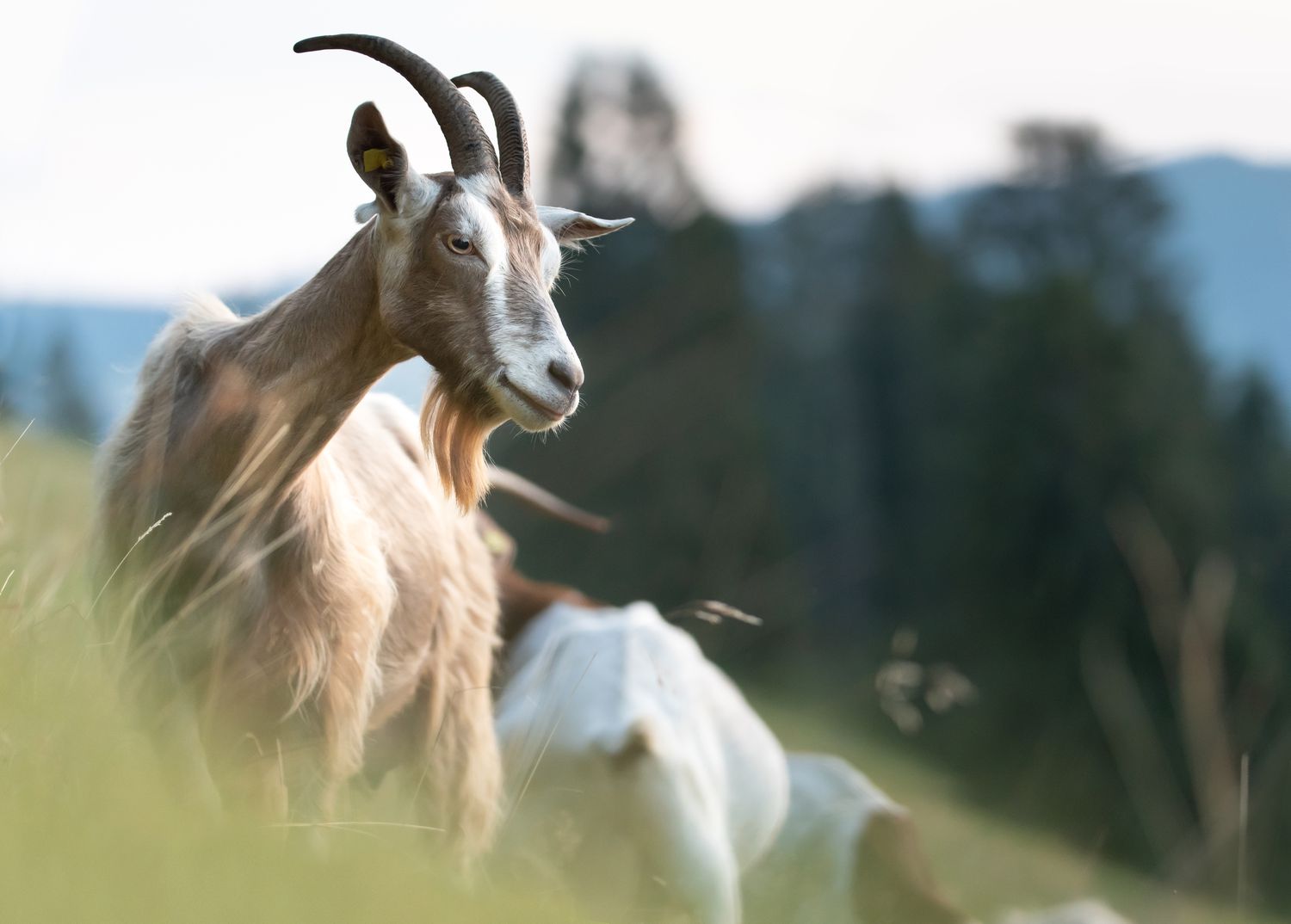What are goats good for? What benefits do they provide? For small farmers, hobby farmers, and homesteaders alike, goats can be a great choice of species. They’re good for milk, meat, fiber, and more.
What Are Goats Good For?
So what are some of the benefits of raising goats?
- Raise your own meat. Raising goats for meat can be a great thing to do for your own family, to provide for your food needs, but it can also be a profitable small farm business—if thought through carefully and with an eye to where you will market it.
- Produce milk. Dairy goats give copious amounts of milk, usually more than a family can use. You can make goat cheese, goat yogurt, and whatever other dairy products you can dream up (goat kefir?). If you are a small farmer, goats can help you achieve a goal of producing value-added products like cheese, and yogurt—or just sell fresh goat milk. There is a good market for it with folks who can’t tolerate cow dairy
- Produce soap. Goat milk makes a wonderful, soft, and mild soap that is often used by people with sensitive skin.
- Produce fiber. Goats are good for producing fiber as well as milk and meat. They’re so versatile. Angora and Pygora goats yield mohair, while cashmere goats produce cashmere. Again, you can take raw goat fiber and spin it into yarn and knit, weave, or crochet it into any number of value-added products.
- Clear land. Goats are great browsers and they love to eat weeds and blackberry brambles. Pasture them on whatever you want to clear out and let them act as living brush hogs.
- Use them as pack animals. Goats can be trained to carry your gear on hikes, and are especially suited to steep and rocky paths. They can easily carry 20 to 30 percent of their body weight, and they have a minimal environmental impact. They can eat what they find as they travel by browsing along the trail, so you don’t have to pack food for them. Goats can also be taught to pull carts.
- Use their dung as fuel. Plenty of people all over the world use goat dung to fuel fires. This is certainly an option for those of us who are big on self-sufficiency.
- Use their skin and hide. Goat skins can be dried and tanned like leather and used in any number of products, including goatskin gloves. Goat hides (with hair still intact) are traditionally used in Africa to make drum heads. Goatskin rugs can also be made.
- Easy to train and handle. Goats are social animals and they are easy to train. They’re easy to handle, even by children. They’re a good size compared to cows, and that size makes them easier to handle as well.
- They’re inexpensive to keep. Goats are not only useful, but they’re also thrifty. Because they can browse and because they don’t need an overly fancy shelter (just some really good fencing), goats can be a very economical animal for the small farm
- They’re versatile. Milk, meat, fiber, carrying packs, and even fuel from their dung? Goats are good for all of these things.
- They make manure. Okay, any animal does, but goat manure is great for fertilizing your fields. An average goat produces about 300 pounds of manure each year, and the feces are in pellet form, which makes them easy to handle. Goat manure is a good source of potassium, potash, and nitrogen, and possibly other minerals as well.
